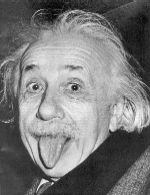
Dr. Bryan G. Wallace
FARCE OF PHYSICS
Introduction
A 1986 Harris poll found that about 70 percent of the
responding adult Americans described themselves as interested in
science and technology, and they said their understanding of the
subject was very good or adequate.[153] The word scientist
entered the English language in 1840, and few individuals earned
a living doing research, with most of the investigations carried
out by gentlemen of wealth and leisure. At that time, a handful
of American scientist were taking steps to transform their status
and image and separate themselves as professionals from those
they considered amateurs.[154] The major tactic used to create
this artificial separation has been the elaborate use of
technical jargon and complex mathematics. This erection of
higher and higher barriers to the comprehension of scientific
affairs is a threat to an essential characteristic of science,
its openness to outside examination and appraisal.[155] Because
of this, modern theoretical physics has become to a large degree,
little more than an elaborate farce. I will attempt to explore
and document this argument, and this book is meant for anyone who
is interested in this subject. I have tried to reduce the
technical jargon and mathematics to a minimum in order to reach
the widest possible audience. If the reader finds parts that are
hard to understand, just skip them, and perhaps come back to them
later if you decide to explore that part in greater detail. You
should realize that in general only about 90% of professional
physicists are able to make sense of less than 10% of what other
physicists say.[156] For the past 50 years most of the
scientific research has been funded by the federal government,
and the number of Ph.D. scientists working in the U.S. has far
outstripped the growth of the population as a whole. President
Eisenhower stated that "in holding scientific research and
discovery in respect, as we should, we must also be alert to the
equal and opposite danger that public policy could itself become
the captive of a scientific-technological elite."[150] You the
taxpayer fund this research, and you also enjoy the benefits that
legitimate research can bring. That is why it is important to
understand what you are getting for your money, and for you to
inform your elected representatives when you think your precious
tax dollars are being wasted. This book is a journey through my
career as a physicist, giving the interesting details of the many
events, arguments, and evidence encountered along the way. I
suspect that the reader will discover that the truth can be
stranger than fiction.
The term physics was derived from the Greek word "physis" for
nature, and the roots of physics lies in the first period of
Greek philosophy in the sixth century B.C., where science,
philosophy and religion were not separated. The aim of physics
is to discover the essential nature of all things, and it lies at
the base of all of natural science. The father of modern physics
and astronomy, Galileo Galilei, was outspoken, forceful,
sometimes tactless, and he enjoyed debate. He made many powerful
enemies, and was eventually tried by the Inquisition and
convicted of heresy. In Galileo's time it was heresy to claim
there was evidence that the Earth went around the Sun, and in our
time it is heresy to argue that there is evidence that the speed
of light in space is not constant for all observers, no matter
how fast they are moving, as predicted by Prof. Albert Einstein's
sacred 1905 Special Relativity Theory. The heresies change, but
as you will find from reading this book, human nature remains the
same!